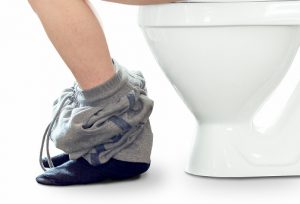 Nocturia (nighttime urination) can be quite annoying, as it keeps you awake at night with frequent trips to the bathroom. The worst part is that even though you may feel as if you have to go, by the time you reach the bathroom, nothing happens.
Nocturia (nighttime urination) can be quite annoying, as it keeps you awake at night with frequent trips to the bathroom. The worst part is that even though you may feel as if you have to go, by the time you reach the bathroom, nothing happens.
Nocturia, or nocturnal polyuria, is a condition characterized by excessive urination during the night. Normally, when asleep, the body produces less urine that is more concentrated. This means that there is less urgency to urinate, which allows for an uninterrupted good night’s sleep.
Advertisement
Those suffering from nocturia experience frequent urges to urinate, often resulting from an underlying health issue.
Here we will outline the causes, symptoms, and treatments for nocturia to help you better understand the condition.
What causes frequent urination at night?
There are numerous causes of frequent urination at night. Possible causes of frequent nighttime urination include:
- Medical conditions: Infections or a large prostate, bladder prolapse, overactive bladder, tumors of the bladder, prostate or pelvic area, diabetes, anxiety, kidney infection, edema, urinary tract infections (UTIs), and neurological disorders like multiple sclerosis or Parkinson’s disease
- Pregnancy
- Sleep apnea
- Medications: diuretics
- Aging
- Lifestyle choices: Excessive fluid consumption, alcohol consumption, caffeine consumption, a habit of waking up throughout the night
As you can see, the causes of nocturia vary greatly, from least harmful to most severe. It’s important that you address the issue of frequent nighttime urination with your doctor for further testing to help inform the diagnosis. Paying close attention to accompanying symptoms of frequent nighttime urination can also help you uncover the underlying cause of your nocturia.
Signs and symptoms of nocturia
The primary symptom of nocturia is, of course, frequent urination at night. Other symptoms may also accompany the condition, shedding light on the possible underlying cause. Signs and symptoms of nocturia can also include:
- Producing large amounts of urine during the day and overnight (over two liters)
- Producing more urine at night, which wakes you up
- Poor sleep
- Cloudy urine
- Difficulty urinating
- Accompanying pain
- Foul-smelling urine
- Frequent urination with only a small amount released
- Burning sensation while urinating
- Urgent need to urinate
Diagnosing and treating frequent urination at night
To achieve a proper diagnosis for nocturia, your doctor will run numerous tests to rule out all possible causes. Tests to properly diagnose nocturia include: blood sugar test, blood urea test, urine culture, fluid deprivation test, and imaging tests like ultrasounds.
Here are some of the important questions your doctor may ask you to uncover the underlying cause of nocturia. When did nocturia begin? How many times a night do you urinate? Is your urine output less than before? Do you have accidents or do you wet the bed? Are there any triggers that make it worse? What medications are you currently on? Do bladder problems or diabetes run in the family?
These questions can provide the doctor with greater insight for proper nocturia diagnosis.
Treatment for nocturia involves addressing the cause. This could involve antibiotics for a present UTI, prescription medications for diabetes and more effective diabetes management strategies, sleep apnea treatment, and lifestyle modification such as moderating beverage consumption.
Advertisement
Sometimes, your doctor may prescribe medications that are commonly used in overactive bladder treatment to ease the symptoms.
Frequent urination at night natural remedies
Nocturnal urination can be a nuisance and can have negative effects on your health. If you’re tired of getting up to pee every night, here are some natural remedies you can try to ease nocturia.
- Drink grapefruit juice regularly as it is a powerful antioxidant.
- Take rice vinegar, which is a powerful antiseptic, to help clean your system of bacteria that may be causing nocturia.
- Consume brown rice before bed—rice is known to absorb fluids.
- Lose weight—sometimes, excess weight pushing on your bladder increases the urge to urinate.
- Drink cranberry juice.
- Reduce your intake of fluids prior to bed.
- Avoid caffeine or alcohol.
- Don’t smoke—smoking damages the bladder.
- Keep your legs elevated to prevent pooling fluid.
- Wear compression stockings.
- Schedule your diuretic medication properly, not too close to bedtime.
- Take the necessary precautions to prevent UTIs.
By trying some of these natural remedies, you can have greater success in managing your nocturia. Speaking with your doctor regarding frequent nighttime urination is still imperative as, once again, it is commonly a sign of another condition that may require medical intervention. By knowing the exact cause of your nocturia, you can effectively treat the condition and alleviate your nighttime urination.
